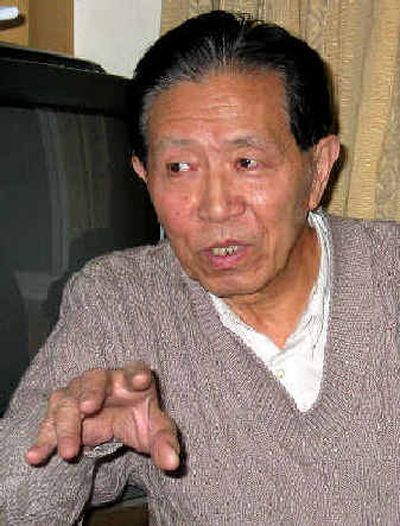Chinese release hero doctor

BEIJING – A Chinese military surgeon who exposed the scope of Beijing’s SARS outbreak and petitioned the government to admit it made mistakes in the 1989 assault on pro-democracy protesters has been released from detention, a U.S. official said Tuesday.
Dr. Jiang Yanyong alarmed Chinese leaders when he wrote a letter dated Feb. 24 urging them to declare the 1989 Tiananmen Square protests a patriotic movement. He asked for a “resolution of errors committed by our party” and a reversal of the official verdict that the nonviolent demonstrations were a counterrevolutionary riot.
In Washington, a State Department official, speaking on condition of anonymity, said Jiang had been released. The official didn’t know when the release occurred.
Jiang, 72, and his wife were detained June 1. She was released two weeks later.
Human rights groups welcomed the news of Jiang’s release.
“The detention violated his rights in the first place,” said Sharon Hom, executive director of New York-based Human Rights in China.
Jiang became known internationally when he broke with government secrecy last year to reveal the true scale of the outbreak of severe acute respiratory syndrome in the capital. His disclosure was followed by the dismissal of China’s health minister and government promises of more openness about the disease.
In the following months, state media praised Jiang as an anti-SARS hero and an “honest doctor.” But he was barred from talking to reporters and wasn’t included in official news conferences.
The 1989 protests are still possibly the most sensitive political issue in China. Hundreds and perhaps thousands of people were killed when Chinese troops broke up the protests centered on Tiananmen Square in the heart of Beijing.
The government suppresses any public discussion of it, even though leaders directly associated with the crackdown have retired. No official death toll has been released and activists who try to compile one have been harassed and detained.
Human Rights in China said last month that Jiang and his wife had been barred from leaving the country for an annual visit to see their daughter in the United States.
It isn’t clear why Jiang wasn’t punished for his SARS revelations or treated more severely over this Tiananmen letter. Others who have appealed for the government to reverse its verdict have been harassed and detained for long periods.
But in addition to his reputation as a public health hero, Jiang enjoys unusual status as both a party member and officer in the politically active People’s Liberation Army.
Foreign analysts say that while the protesters might one day be declared patriots, communist leaders will never say that a party that claims to be infallible killed them in error.
Chinese leaders say the crackdown brought China a decade of political stability and unrivaled economic growth.
Asked about Jiang’s letter at a news conference in April, Premier Wen Jiabao wouldn’t discuss the issue directly. But Wen said the survival of China and the party “hung in the balance” in 1989.
“China faced a very serious political disturbance,” the premier said.